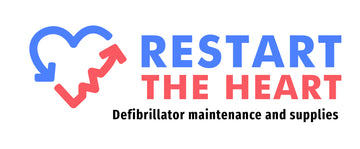How to Buy the Best AED for Your Boat or Ship
Working at sea has its fair share of risks that could either be life-threatening or not. For example, if a crew member were to go into sudden cardiac arrest while you are at sea, their chance of survival is almost 0%. The only way to help them is to use an AED (Automated External Defibrillator), which is a portable but powerful defibrillator designed for use on anyone who has insufficient heart rhythm. Some of these devices can even be used with no medical training. These are all important factors to consider when buying an AED for your vessel. If you're interested in investing in an AED for your boat or vessel, here are some of the things you should consider before buying one.
Ease of Use
When it comes to AEDs, it's a good idea to make sure that the one you buy has a simple, straightforward design. Some of these devices have a plethora of features, with led screens that display everything, or have an auto-locking mechanism that makes it almost impossible to unlock. Before buying the device, it's a good idea to ask the vendor if they have a sample you can try out.
Portability
Depending on the type of vessel you're on, and how big it is, you may need to consider how portable the AED is. You may not want an AED that takes up space or has a big weight. If you're on a big or small boat, you may need to consider buying an AED that can easily be held in one hand. The device should be lightweight and not too big. Try looking for an AED that comes with an integrated belt or other harness to carry it around.
Durability
You will most likely be using your AED in extreme conditions, especially if you are at sea. If you're shopping for an AED to use on your vessel, make sure it is water-resistant, waterproof and can withstand the conditions of the ocean. You don't want the AED to get wet and short out due to a harsh downpour at sea.
The device should also be able to withstand physical shocks, such as being dropped from great heights. Make sure that the AED you are looking at buying can withstand these conditions.
Sensitivity
AEDs are designed to detect arrhythmias in the body. While some of these devices can detect almost any irregularity, it's always recommended to go for one that is sensitive to detect very small changes. The main reason for this is that it helps the AED detect differences when patients are in a life-threatening situation.
Power Supply
Another essential feature to consider is the power supply. Some AEDs are powered by integrated batteries, while others are powered by an external power supply. The batteries for AEDs usually last for about 3-4 hours before needing a recharge. If you're out at sea for more than 3-4 hours, you will have to find a way of recharging your AED.
Conclusion
Boats are a great place to spend your time, but they can get dangerous very easily. This is why it's absolutely vital that you have an AED on your vessel if you intend to spend your time here. When you are shopping for an AED, it's a good idea to make sure that you consider all of these factors. The last thing you want to do is rush in and buy a device that you think will work and end up getting you into trouble if it doesn't.
Restart The Heart is a trusted AED reseller in Australia, offering a wide range of AED batteries and pads from some of the leading brands in the industry. If you're going to invest in a defibrillator for your company, business, or medical facility, trust us to deliver all your needs. Contact us today to order!

